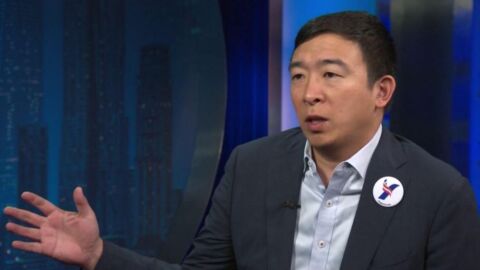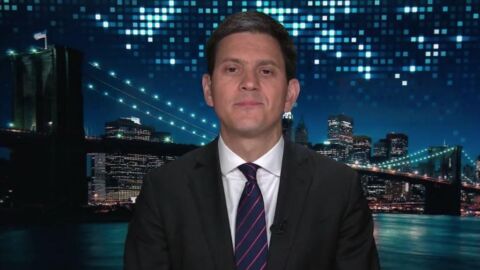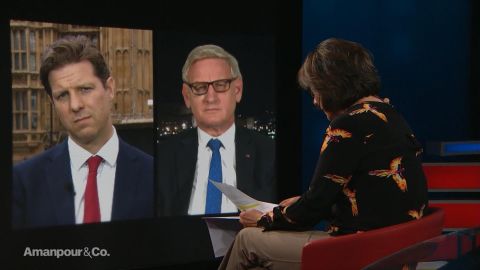Read Transcript EXPAND
DAVID MILIBAND, PRESIDENT & CEO, INTERNATIONAL RESCUE COMMITTEE: Well, that’s one thing that is unique about this Ebola outbreak. It’s the first Ebola outbreak to take place in a conflict zone. The epicenter of the outbreak, Butembo, is an area in the far east of the Democratic Republic of Congo where there are at least 20 different armed groups just in that narrow area and probably 60 in the wider province. And this is something which poses special challenges when you’re trying to build public trust, which is the foundation of an effective Ebola response. It must seem incredible to your viewers that health centers are being burned down. But 10 months into the outbreak, that is the case because the Ebola treatment centers are seen as agents of central government against which the local people have a high degree of animus. So this is why it’s uniquely challenging. It’s now 10 months into the outbreak, and all of my instincts and all of the facts I was able to gather on a trip there recently are that the situation is getting worse, not better.
CHRISTIANE AMANPOUR: And do you think, because everybody obviously remembers, in West Africa, how awful it was there, and then how terrified everybody was that it was going to spread beyond Africa into America, Europe, et cetera. Does this have the same potential?
MILIBAND: Well, I think at this stage it’s important not to engender a global panic, but it is right to call for a global reset on the response. Let me explain what I mean. At the moment, there are about a thousand people dead, just over – just under 1,100. There have been about 1,800 cases. That compares with the West Africa outbreak of 2014, when over 10,000 people died. So in terms of order of magnitude, this is the second largest outbreak but it’s only one-tenth of the scale of the worst outbreak. Having said that, there’s a real concern that the number of cases is being masked by the shutdown of services that’s resulted from the attacks on the health centers, and this does become an international problem if or when the outbreak spreads from, Butembo, the current epicenter to Goma, on the Rwanda-Uganda border. That’s the heart of the cross border trade, and obviously if the outbreak was to spread to Goma, that would pose enormous regional concerns. Our concern at the International Rescue Committee is that community trust is marked by its absence.
There is a real fear that the treatment of Ebola is something that’s seen as an alien or outside force, the association of international agencies with a national government which is disliked. Remember, this is an area where the national government cancelled the elections in December. It’s a heartland of the opposition, and that trust gap is the biggest danger at the moment, because it lies at the core of the risk that Ebola spreads and spreads widely.
About This Episode EXPAND
Christiane Amanpour speaks with Carl Bildt and Fraser Nelson to discuss PM Theresa May’s resignation. She also speaks with David Miliband, President & CEO of the International Rescue Committee, about the resurgence of Ebola in the Democratic Republic of the Congo. Hari Sreenivasan speaks with 2020 U.S. Presidential candidate Andrew Yang.
LEARN MORE


